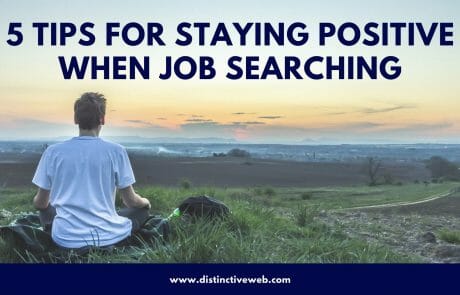
It’s time. You’ve decided you’re ready to make that leap back into the grown-up world where you’ll trade your sweatshirt for a suit jacket and push papers instead of a stroller. Conversations won’t end with “Because I said so” and naptime will quickly become a distant memory.
Returning to the workforce (the paid workforce that is) after time away to raise your family won’t be easy, but you can make it happen.
How you structure your job search for a workforce re-entry depends on how long you have been away. The shorter the time, the more current your skills are, and therefore your search is likely to be a bit less challenging. If you have been away for years, more work and workforce re-entry planning will likely be required. What constitutes short- and long-term really depends on your industry, but below are some job search tips that can apply to each returning to the workforce scenario.
Planning Your Workforce Re-entry
Keep on target: You’ve spent some time convincing yourself that this is the right move, so make sure the argument is over. Getting back in the 9-to-5 world will require that you’re fully on board. You can’t project uncertainty to potential employers or approach the task half-heartedly while you figure out if you want to do it. Be decisive and know your goals.
Figure out child care before you start back: The biggest change moms and dads have to deal with when returning to the workforce is shifting your priority away from your family and on to your job during your workday. Employers don’t want to deal with your personal life – when you’re on the clock, your job has to be the focus. Start the change by lining up reliable child care. If you’ve got this figured out, you can attend interviews on the potential employer’s schedule and show that you’re ready to be all in on the job. And prep your caregivers and your kids for those for few weeks after returning to the workforce. Discuss acceptable reasons for calling you at work with the emphasis on not calling. Expect that you WON’T have break times for phone calls during that first week and explain this to them.
Be pro-active and get current in your field: While your skills and qualifications may still be current, your experience may not be. Take a course, workshop, or seminar to boost your educational background. A part-time job, volunteer work, or even a one-time gig related to your field can show that you have remained invested in your work and that you can prove it. Take some time to ramp up and learn any new technology or applications used in your field. If there are related regulations, get updated on the latest. The internet has become a major tool in all industries – figure out how it plays into your line of work. If you’ve been certified in your profession, see what you need to do to get current.
Ask for help: Let people know you’ve decided to go back to work. Ask for help and advice from friends, family, and ex-colleagues. Tell them what skills you have and what kind of job you’re looking for. This is your network and when returning to the workforce, leveraging it can lead to opportunities. Get help on getting your resume in shape (book a free Discovery Consultation with us to learn how we can help). You’ll need to address the employment gap so that it highlights your value to employers.
Go back within 10 years: In today’s flexible job market, a three to five-year absence can be explained pretty easily. hiring managers and recruiters frequently see employment gaps like this, and having spent that gap by choice creates an acceptable justification. Justifying more than ten years becomes more difficult.
Tips for Finding a New Job After You’ve Been Away
Talk with headhunters and staffing agencies. Why do all of the work yourself when you can have others helping you? Recruiters know who is hiring, what experience they need, which companies are family-friendly…take advantage of this resource during your job search.
Apply to your previous company. They know you have the skills, they know you have the experience, and best of all, you know the corporate culture. If you are on friendly terms with any of the managers, call them – they may be able to find a position (possibly hidden ones too) for you.
Look for opportunities in the hidden job market. Talk to everyone you know and let them know you are job searching. Don’t ask them if they know of a job opening. Instead, ask them if they could introduce you to someone they know that it will be helpful for you to talk with. This will expand your network and eventually your resume may get passed along to a company that needs your skills – but without the competition.
Try temping. While this won’t work for all types of careers, a temporary job can certainly give you a taste of the workplace again. Also, some companies like to hire their temporary employees – and that could be you.
Practice, practice, practice. You need to know to sell yourself and how to explain the gap in your experience. Write down all possible questions and practice answering every one of them. Then practice in front of family, friends, or even the mirror – face-to-face interaction tends to be more difficult, so remove that hurdle from your job search.
Create Your Returning to the Workforce Resume
Be honest. If you try to gloss over the employment gap or disguise it with a questionable job title like “Domestic Engineer” you risk giving the impression that you’re hiding something. And, while honesty is always the best policy, remove “parent” from your resume. No, you probably didn’t have this word in it, but while being a parent is definitely hard work, it isn’t the kind of experience that most companies require (unless you are applying to a daycare facility). To make your job search smoother, make sure your experience and skills in your resume and in interviews relate directly to what the company needs. Use your cover letter to explain the employment gap along with descriptions of what you’ve done to stay or get back in the know in your field.
List unpaid work that used business skills. List activities that helped you keep your skills up. Volunteering, continuing ed, freelance projects, professional development, and self-employment are all activities where you used business skills that could apply to your desired position. If you were a volunteer leader, describe your role and list your accomplishments. If you created a newsletter, website, or marketing materials gratis, describe the project and the tools you used.
Get outside help. Creating your resume for returning to work will be your biggest challenge and your best tool. You need to put on paper the value you bring to an employer and do it in a way that showcases your skills as fresh. It’s important to get an outsider who’s closer to the employment game to help you whip it into shape. Hiring a professional resume writer may save you a huge amount of time, money, and stress by shortening your search and making it more rewarding. Book a Discovery Consultation with us to learn more.
Stay Motivated During a Challenging Job Seach
Adjust your expectations, especially if you have been out of the workforce for a while. It takes time to build confidence, trust, and knowledge – both for you and your prospective employer – so that you again are recognized as a valued employee. That means that when you are first returning to the workforce, you may not jump into the same level you once were at. But you can get back there, just not necessarily at the start.
Be your own cheerleader. Some people will see your time at home as a way of getting out of work. Others will question your parenting for wanting to go back. Neither of these attitudes define you, or any other stay-at-home parent. You’re doing what makes sense for you and your family, and you need to keep your chin up. Don’t let others’ negativity affect your decision.
Finally, be patient, be realistic, and stay confident. Getting back into the workforce nowadays is no easy task…and getting back in after a sabbatical to raise children is even more difficult. Jobs probably won’t jump into your lap, but with perseverance, dedication, and positivity, you will be successful in your job search.









